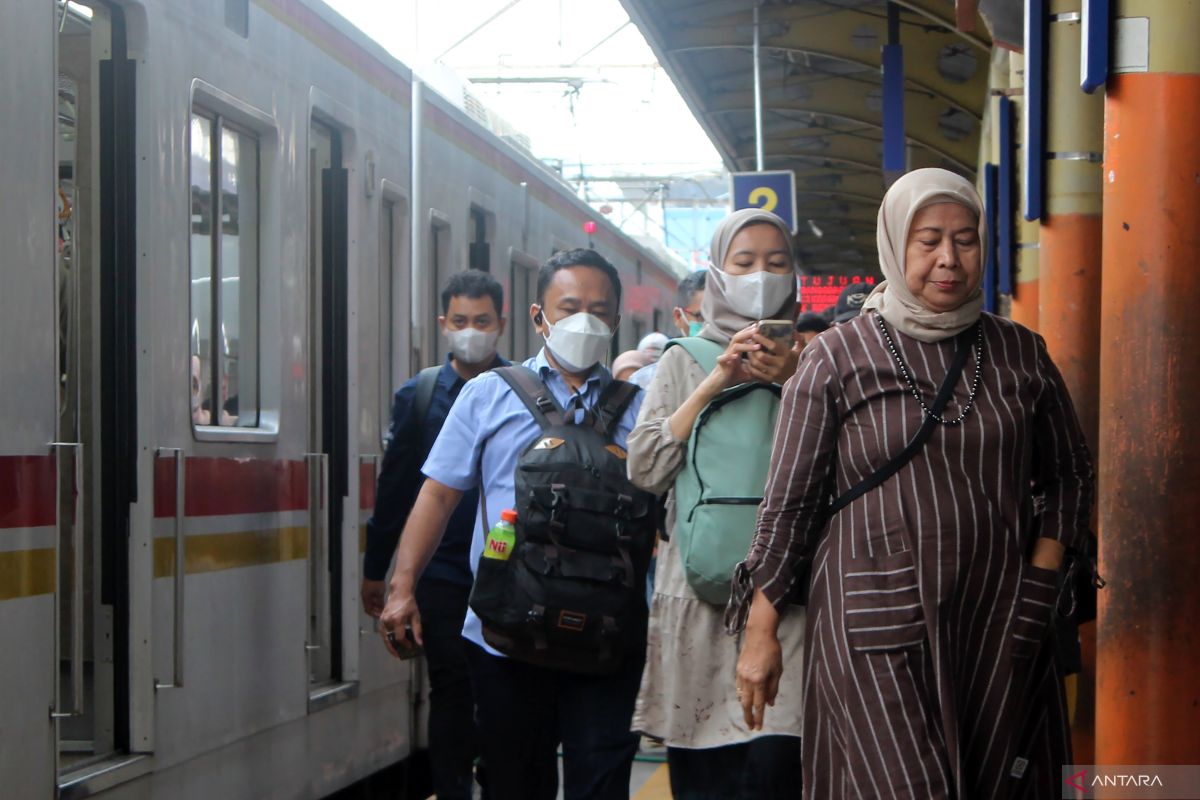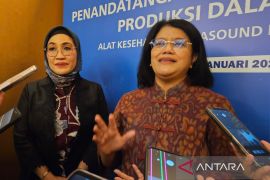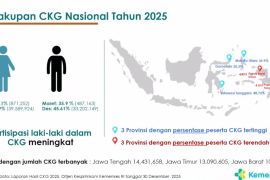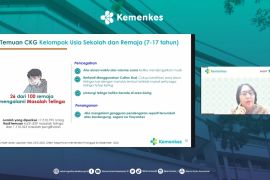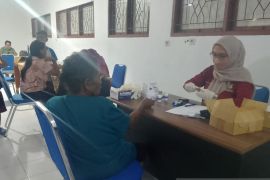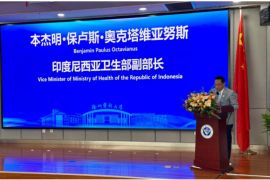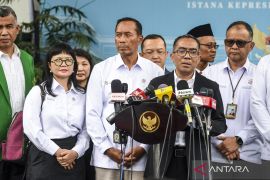"There is yet to be any indication... that the two sub-variants are more infectious or dangerous compared to others," said Mohammad Syahril, spokesperson for the Health Ministry, in an official statement on Wednesday.
He said that the Indonesian government is exercising vigilance against the two sub-variants.
Data from the Singaporean Health Ministry showed an increase in COVID-19 cases from 13,700 in the 18th week (April 28–May 4) to 25,900 cases in the 19th week (May 5–11). During the same period, the number of hospitalized patients rose from 181 to 250.
Both KP.1 and KP.2 are sub-variants of JN.1, which is itself a sub-variant of Omicron.
Globally, JN.1 is dominating COVID-19 cases in the world with 54.3 percent. In Singapore, KP.1 and KP.2 combined make up two-thirds of the COVID-19 cases.
Syahril said that as of May 3, the World Health Organization (WHO) has classified KP.2 as a variant under monitoring (VUM). However, there has been no indication that KP.1 and KP.2 are more infectious or dangerous compared to other variants.
According to the Global Initiative on Sharing All Influenza Data (GISAID) by the ASEAN BioDiaspora Virtual Center, as of May 19, JN.1 has been the predominant COVID-19 variant in ASEAN countries in 2023–2024.
In ASEAN, the KP variant has not only been detected in Singapore but also in Malaysia, Thailand, and Cambodia. No cases have been detected in Indonesia so far, Syahril said.
"As of May 2024, COVID-19 cases spread in Indonesia are dominated by Omicron sub-variants: JN.1.1, JN.1, and JN.1.39. As for KP sub-variants, none have been found yet," he said.
He also said that, based on all the data on KP.1 and KP.2 infections in Singapore, there is no urgent need to impose travel restrictions yet.
However, Syahril stressed that the endemic status does not mean that COVID-19 is completely gone, but rather that it is under control.
There is still a chance that a dangerous subvariant could appear and cause a spike in the number of cases or deaths, he added.
He appealed to people to continue adhering to the health protocols, such as washing hands, wearing masks in crowded areas and on public transportation, and getting vaccinated against COVID-19, particularly those at risk of contracting an infection.
He also advised people who wish to travel to follow the local health guidelines.
Related news: Indonesia replaces imported COVID vaccines with safer domestic ones
Related news: Indonesia shares experience in handling COVID-19 at IMF meeting
Reporter: Mecca Yumna Ning Prisie
Editor: Anton Santoso
Copyright © ANTARA 2024
